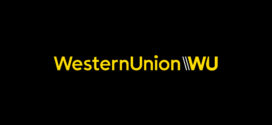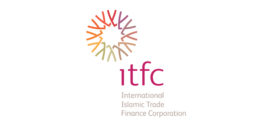 The emerging markets are hotbeds for growing businesses. Will Nagle, CEO, and Nam Sahasra, Regional Head, UAE, at specialist financier Falcon Group, discuss the opportunities and challenges presented by emerging markets – particularly the Middle East – and the role specialist financiers can play in aiding expansion
The emerging markets are hotbeds for growing businesses. Will Nagle, CEO, and Nam Sahasra, Regional Head, UAE, at specialist financier Falcon Group, discuss the opportunities and challenges presented by emerging markets – particularly the Middle East – and the role specialist financiers can play in aiding expansion
Gone are the days when the US, EU, and Japan accounted for 70% of global GDP. Now, their share is closer to 30%, largely due to the rise to prominence of the emerging markets which have increased their volume of trade both with developed markets and with each other – a phenomenon known as south-south trade.
Given this, companies looking to expand their global footprints in 2016 and beyond must turn towards the emerging markets. The MENA region (Middle East and North Africa), for example, is ripe for trade collaboration – with its crucial geographic position and wealth of natural resources.
The only problem, of course, is that growth requires fuel. And while companies might be keen to expand to the emerging markets, global banks, on the other hand, are retreating. Cue the rise of specialist financiers – starting where the banks stop.
A new economic frontier
 Perhaps the most attractive prospect offered by the emerging markets is the growth of middle class populations – potentially offering an untapped consumer base for many products and services.
Perhaps the most attractive prospect offered by the emerging markets is the growth of middle class populations – potentially offering an untapped consumer base for many products and services.
In Asia alone, the middle class population has reached 525 million – exceeding the entire population of the European Union, according to Ernst & Young. Globally, emerging market middle class spending is expected to increase from US$6.9 trillion in 2010 to US$20 trillion in 2020, according to a study by McKinsey & Company.
Furthermore, new technologies and infrastructure developments are creating a more business-friendly environment and attracting investment opportunities to the emerging markets by reducing the cost of production, creating economies of scale, and opening the doors to neighbouring regions. The Gulf Cooperation Council (GCC) is one example of an intergovernmental union working towards promoting regional integration in the Middle East. Indeed, the GCC is also working toward regional integration in the Middle East through shared infrastructure projects in order to better-access resources and create a regional economy.
Soft infrastructure processes – such as lowering tariffs and non-tariff barriers to trade through bilateral trade agreements – also help to encourage business. Trade agreements – such as the Trans-Pacific Partnership (TPP) – not only open doors to new markets, they also enable businesses to establish themselves as pioneers – acquiring a significant share of the market and eliminating any potential competition.
The funding Gap
Yet, despite the opportunities presented by these emerging markets, there is a challenge standing between growth-hungry businesses and this new economic frontier: funding.
Post-crisis regulations, such as Basel III, require banks to hold more capital on their balance sheets. In order to remain profitable, many banks are faced with the choice of raising prices, overhauling processes in order to increase efficiency, or stepping away from trade finance – with the latter, unfortunately, a frequent outcome.
Furthermore, compliance measures such as (Know Your Customer) KYC and (Anti-Money Laundering) AML, while crucial, are stunting global bank financing. The International Chamber of Commerce (ICC) 2015 Global Survey on Trade Finance found that 70% of banks reported a decline in transactions, and 46% reported complete termination of correspondent relationships – all due to the increasing costs and complexities surrounding compliance measures.
Bridging the gap to accessible funding
As such, it falls on the local banks and the specialist financing industry to pick up the pieces – something they are well-equipped to do. Specialist financiers in particular – which operate differently to banks – are less stringently regulated due to the simple fact that they do not take deposits. This affords firms such as Falcon Group, for instance, the flexibility to provide structured solutions where banks can’t – creating and delivering bespoke financing solutions.
What’s more, they are particularly suited to meeting global and emerging market expansion goals. The constrained lending to the emerging markets since the financial crisis has provided the perfect environment for burgeoning specialist financing growth. They have operated in the emerging markets for years, have in-depth local knowledge and extensive local networks.
That said, it is of course true that specialist financiers do not have the balance sheets of global banks – making collaboration, rather than competition, between all the players across the financial landscape a necessity. Frequently, companies can access solutions that encompass both the extensive resources of global banks and the flexibility of specialist financiers.
Certainly, the withdrawal of global banks – and the emergence of a financial landscape that has a variety players – is, in fact, a positive development. Indeed, it means that companies wishing to expand to the emerging markets now have access to a more diversified and sophisticated funding base than ever before.
So, out of excuses, and presented with a range of comprehensive financing solutions, now is the time for mid-market companies to set their sights to more ambitious shores.
 Cash And Trade Magazine For Cash and Trade professionals in the Middle East
Cash And Trade Magazine For Cash and Trade professionals in the Middle East




